Last year, we were treated to (or inundated with, depending on your perspective) more television on more platforms than ever before. In 2019, we moved far past the TV renaissance. Past the Golden Age of television. Past the “streaming age,” even, as it’s become commonplace to binge entire seasons in a sitting and add or swap streaming services on a monthly basis. But before we move too far into 2020, when we’ll be getting even more content across several more platforms, we wanted to feature thirty of our favorite episodes of 2019 from the breadth of content that has graced our televisions, phones, computers, and tablets—from adult animated shows on Netflix to dramas about grief and mental health on Facebook. (Yes, even social media is producing television now.)
Two of us who contributed to this list watched more than a thousand episodes last year, and the third contributor watched a lot too but is much too cool to track her obsessive binges in a detailed spreadsheet throughout the year. All of us, however, share a love of the medium and of story. You’ll find that a lot of the episodes we chose tell what we believe are important stories about mental health, race, grief, and love, because we believe the power of a good episode lies in more than just great acting or perfectly crafted shots; it lies in its ability to encourage us to confront the best and worst in ourselves—and, of course, to unite us.
“This Extraordinary Being” (Watchmen, HBO)
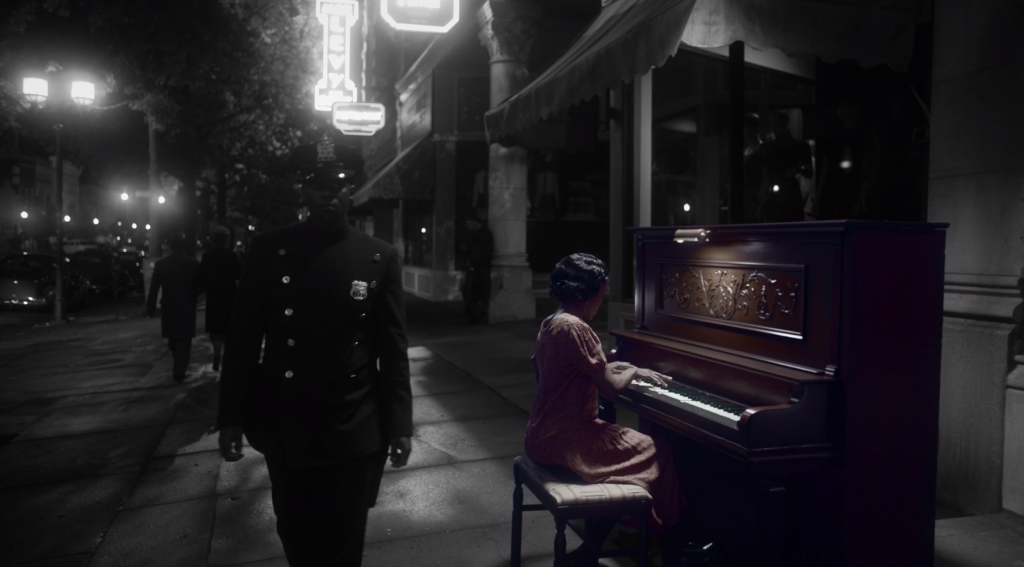
From its first episode, Watchmen arrived guns blazing, telling an intricate story about race, politics, and identity without sacrificing the superheroics that propelled the plot in the graphic novel on which it’s based. For the sake of diversifying this list and featuring more shows, we limited ourselves to picking just one episode per series, but if I’m being honest, at least three episodes of Watchmen could be featured here. Ultimately I had to choose “This Extraordinary Being” for its beautiful visuals, superb acting, and surprising plot developments that added more emotional resonance to both the show and graphic novel.
Angela (Regina King), having just taken the whole bottle of her grandfather Will’s Nostalgia—i.e., his memories in pill form—relives his life in gorgeous black and white, experiencing the racism, confusion of sexuality, and violence he faced as a young man firsthand. There are some large-scale plot developments, including the introduction of a white supremacist group called Cyclops; the brilliant retcon reveal of Will being the first masked vigilante Minuteman, Hooded Justice; and the murder of Judd Crawford by Will via hypnotism flashlight. (Yes, that last part sounds silly as heck, but trust us: It works.) But these big moments work so well because of the much quieter ones: the conversations about race and identity between Will and his wife, June; Will discovering his son dressing up in his Hooded Justice costume and getting angry, ultimately ending his marriage; haunting images from the Massacre of Black Wall Street bleeding into everything Will/Angela experiences. It’s a bold and risky but beautiful episode that works on almost every level. —Daniel Toy

“Part Four” (When They See Us, Netflix)
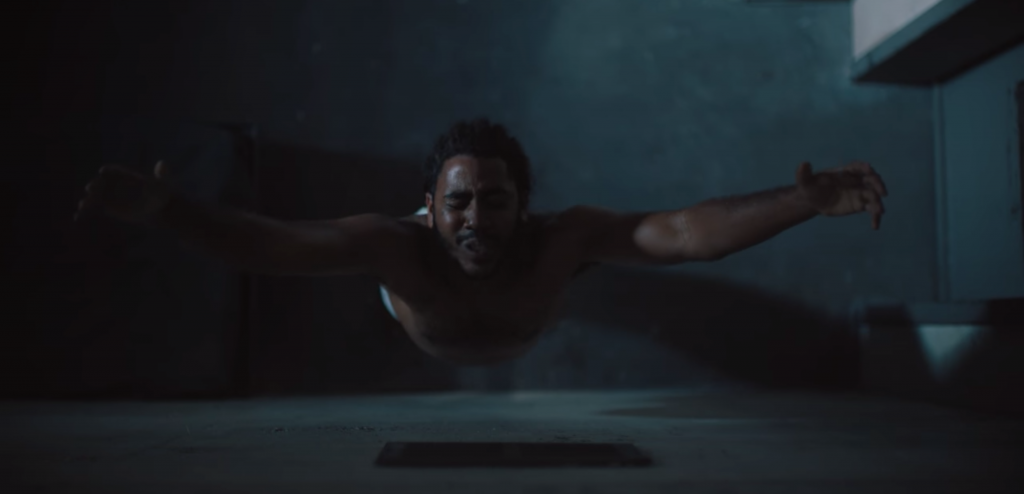
Ava DuVernay’s miniseries based on the Central Park Five was the most affecting thing I watched this year, and “Part Four” is a true showcase for how the false accusation crumbled the lives of these five innocent young men in Harlem. The final installment of When They See Us focused on Korey Wise—the only defendant in the case to be tried as an adult, portrayed with palpable emotion and empathy by Emmy-winning Jharrel Jerome—as he serves his sentence in the notorious Rikers Island facility. While in jail, Wise is abused, beaten up, and put into solitary confinement where he hallucinates about his family and his previous freedom; they are the only things tethering him to reality.
The episode itself plays like a mini movie and feels slightly separate from the rest of the series, which until that point had flitted from one of the boy’s stories to another, and followed them through adulthood after being released from jail. The intense focus on Wise’s experience in “Part Four” is not only jarring but necessary. It’s an uneasy and emotional journey as we watch Wise grow from child to man in the confines of the unforgiving jail, and within a structure whose violence Wise doesn’t comprehend. It’s difficult to watch, difficult to endure, and difficult to fathom—you will question the system that allowed this to happen and wonder how many others have lived through the same awful fate. —Radhika Menon

“Episode 5” (Sex Education, Netflix)
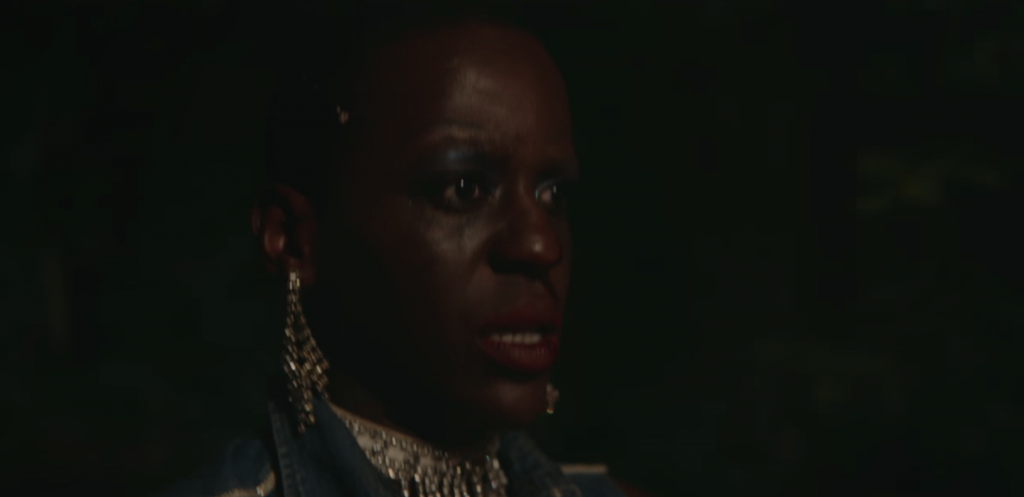
In its first few episodes, Sex Education proved to be an entertaining dramedy and a fun enough weekend binge, but it took a semi-abrupt turn in its fifth episode to address more serious issues of body shaming, anti-gay violence, and the importance of friendship. After an image of a girl’s genitals is circulated around school, Otis (Asa Butterfield) helps his crush, Maeve (Emma Mackey), find out who initially distributed the photo in an effort to get closer to her, but their adventure takes longer than expected and Otis misses an event his queer best friend, Eric (Ncuti Gatwa), wants him to attend. Eric has only just started to embrace who he is and travels alone in drag to the event when he is brutally assaulted by an anti-gay man. Despite the difficult content of the episode, Gatwa shines, perfectly showing Eric’s turn from excitement to sensitivity to disappointment in Otis while having to maintain a tough exterior in order just to get back home alive. Both the anti-gay and body-shaming storylines demonstrate the intense pressure teens in today’s digital age have to try to protect themselves while also being themselves, and Eric’s arc specifically broke my heart. —Daniel Toy

“The Jelly Lakes” (Tuca & Bertie, Netflix)
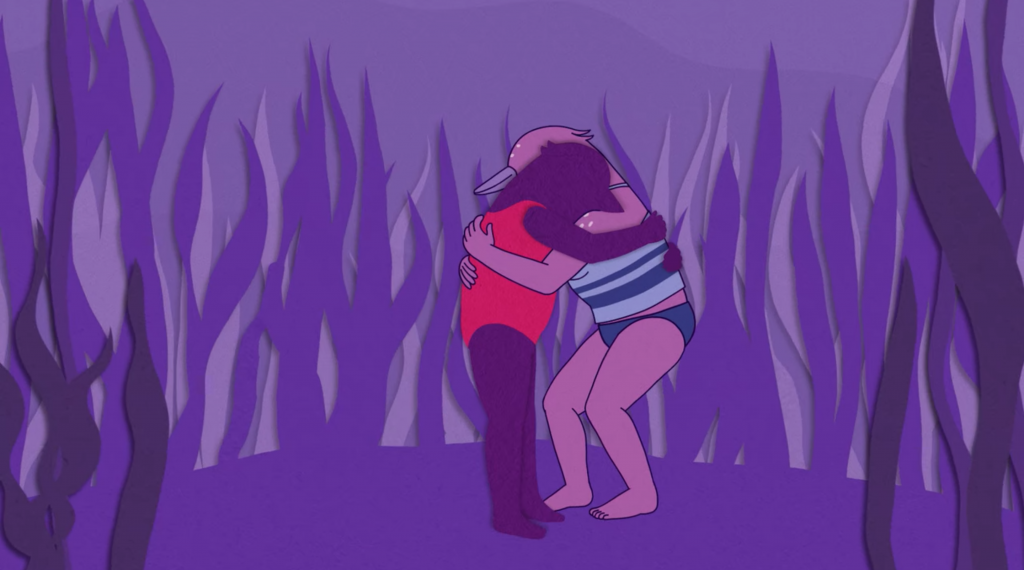
Netflix canceling Lisa Hanawalt, Tiffany Haddish, and Ali Wong’s show, Tuca & Bertie, after a single critically acclaimed season remains one of the biggest pop culture disappointments of 2019. Chock-full of Hanawalt’s specific, absurdist visual humor and anchored by Haddish and Wong’s immediate chemistry, you could just tell that Tuca & Bertie was something special from the moment you pressed play on the first episode. And while we may never be getting any more of these two incredible birds, we’ll always have the incredibly well-crafted world they inhabit.
From its million-joke-a-minute format to its deeply affecting look at its titular friendship, the penultimate episode of its only season, “The Jelly Lakes,” perfectly encompasses everything this show did well in its short life span. The episode begins with a tense road trip following Tuca and Bertie’s growing rift over the season and leads to their eventual make-up, which sends them on a journey toward Bertie’s childhood summer home. She spends the whole episode dealing with different aspects of her past trauma: her recent sexual harassment at the hands of her mentor, Pastry Pete; her fear of commitment to her partner, Speckle; and her unexplained hatred of Peanut Butter Island. After running into her high school swimming coach, we learn that the reason Bertie has stopped visiting the Jelly Lakes is because she was assaulted by the camp lifeguard there as a child. It’s devastating stuff to witness but shows us how important Tuca and Bertie’s friendship is for their overall growth and healing. —Bob Raymonda

“Life Is a Cabaret” (Schitt’s Creek, Pop)
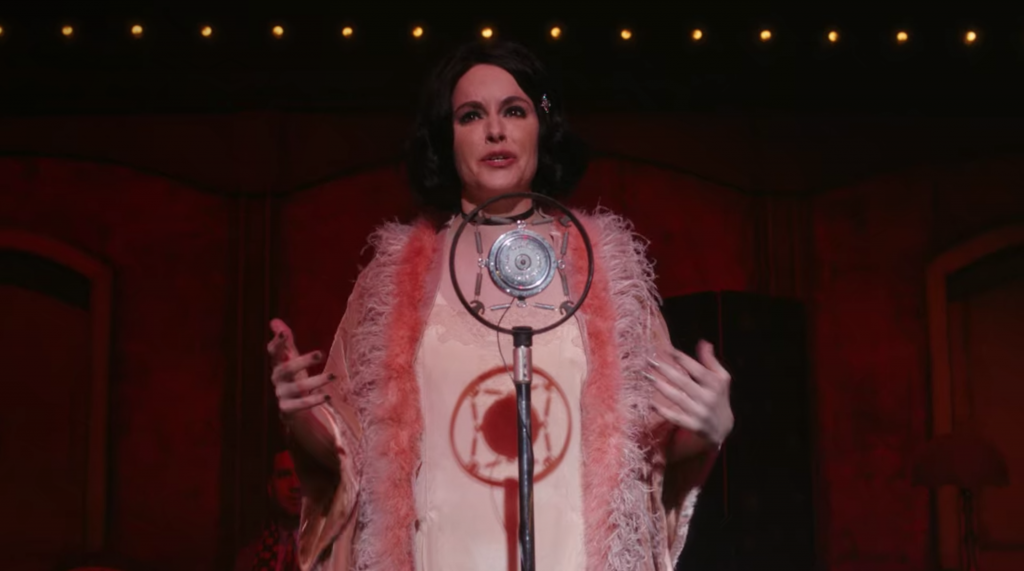
Schitt’s Creek is a sneaky show. When it debuted, it was described as a hilarious takedown of Kardashian-type personalities in a fish-out-of-water setup. But over the years, it’s become one of TV’s most heartwarming depictions of family—and not to mention one of the funniest shows on television.
Season five had it all: a failed Birdman-esque film starring Moira Rose in a copious amount of feathers, an engagement (!), a small-town rendition of Cabaret, and a regional motel awards show. Stevie found romance in the least expected place, and David and Alexis both took their relationships to the next level. In the excellent finale, “Life Is a Cabaret,” which takes place in the lead-up to the world (or local) premiere of Moira’s musical, everyone is ready to take a step forward, up and out of their comfort zones. Dan and Patrick celebrate their engagement (which was…simply the best); Alexis and Ted prepare to move to the Galápagos Islands while Johnny tries to convince her to stay; and Moira steps in as a surrogate mom to Stevie when she needs it the most. But it’s Stevie’s end-of-season emotions that captured my attention, if only because I felt them too—happiness for my friends in their evolving lives but feeling relatively stuck in my own.
The episode ends with Stevie’s beautifully chilling performance of “Maybe This Time,” a haunting ballad about being unsure and unfulfilled about where life is really going. Emily Hampshire infuses the performance with more soul and vulnerability than we’ve ever seen from her (and ergo, Stevie), and the payoff is grand. “Life Is a Cabaret” follows the Schitt’s Creek tradition of strong finales—not only was it rapturously funny, but it was loving and joyful too. —Radhika Menon

“The First Thing I Remember Is Fire” (The Dark Crystal: Age of Resistance, Netflix)
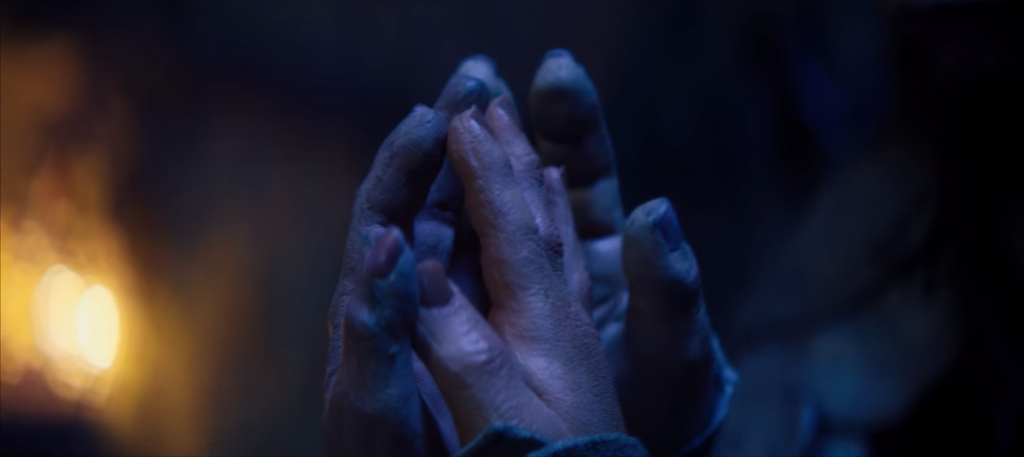
The sheer fact that The Dark Crystal: Age of Resistance even exists in the year 2019 is an accomplishment. The long-gestating prequel series to the Henson-produced 1982 original spent years in development hell before being scooped up and announced as a live-action Netflix series in 2017. Originally pitched as an animated prequel, the Jim Henson Company was both surprised and excited when executives from Netflix requested a version with puppets instead. And the viewers? We’re all better off for it, because the sheer technical achievements displayed throughout this first ten-episode outing are massive.
The reason that “The First Thing I Remember Is Fire” is specifically a standout for this series is that it’s the first time you truly understand the height of the stakes in Thra and earnestly fall in love with many of its inhabitants. The first three episodes all lay the necessary careful groundwork for a fantasy series such as this, which at times felt slow but pay off in spades here as we witness the chips beginning to fall. Deet (Nathalie Emmanuel) sets us on our adventure, rescuing her beloved Podling sidekick Hup (Victor Yerrid) from prison, while Brea (Anya Taylor-Joy) shows off her knowledge and puzzle-solving skills in the labyrinth, and the Chamberlain (Simon Pegg) lays out his plan for recapturing Rian (Taron Egerton) and getting back into the Emperor’s (Jason Isaacs) good graces. You may be surprised that these puppets won over our hearts more than a certain HBO fantasy show that shall not be named’s final season, but it’s the meticulous balance between storytelling and spectacle that makes The Dark Crystal win out here. And the final battle here between Rian; his father, Ordon (Mark Strong); and the Hunter (Ralph Ineson) truly encapsulates both: a stunning visual achievement alongside a devastating character death that hits you in the gut and eviscerates you emotionally. —Bob Raymonda

“ronny/lily” (Barry, HBO)
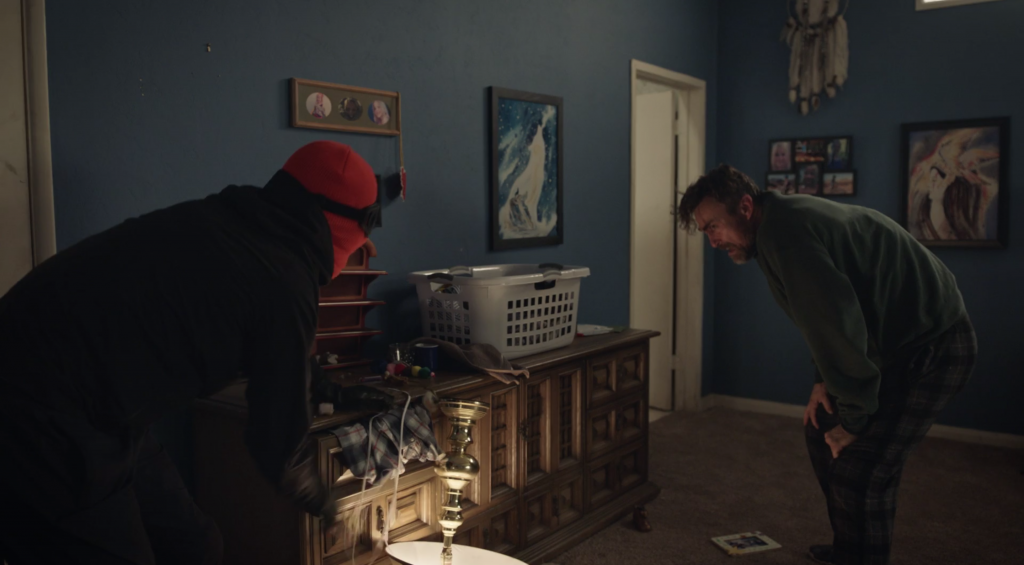
Barry’s “ronny/lily” is a one-of-a-kind episode that takes a bold tonal and storytelling shift that actually somehow succeeds. Barry (Bill Hader) is tasked with killing a man named Ronny (Daniel Bernhardt), but Barry, who has attempted to turn over a new leaf and not kill, tries to coerce Ronny into skipping town. But that’s when the situation gets heated. Ronny, you see, is an extremely skilled martial artist, and he and Barry have a near-silent ten-minute brawl that ends with Ronny on the ground with a broken windpipe. Then things get downright surreal when his daughter, Lily (Jessie Giacomazzi)—perhaps an even more skilled martial artist than Ronny—comes home, finds her dying father, and attacks Barry with various kitchen utensils while almost literally flying around the room and then later scaling trees with little to no effort. For its runtime, this bottle episode of sorts feels like it has to end up being a dream or drug trip, but no, everything we’ve seen has really happened, and it gives the show a boost of energy with an out-there sci-fi spin the likes of which we haven’t seen on a grounded prestige drama before. —Daniel Toy

“All the Missing Girls” (Surviving R. Kelly, Netflix)
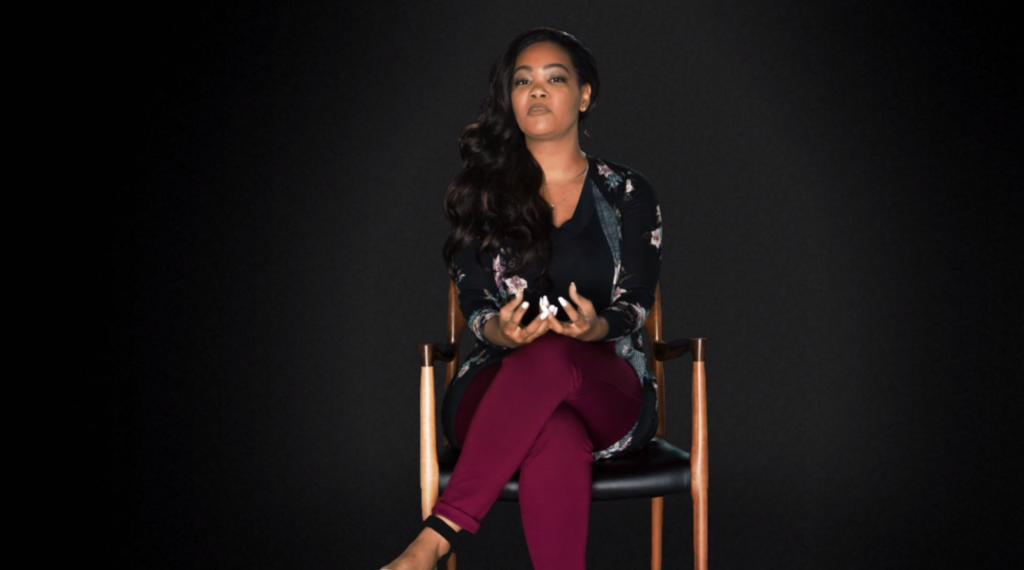
dream hampton’s docuseries about the sexual abuse allegations against singer R. Kelly was one of the most harrowing watches of 2019, and the experience of watching it has stuck with me long past its January premiere date. Surviving R. Kelly spoke with the music industry veterans, families of victims, former victims themselves, and former members of Kelly’s entourage about the abusive acts happening within the walls of Kelly’s homes in Chicago and Atlanta. “All the Missing Girls” is the penultimate episode of the miniseries that zeroes in on two families, both in pursuit of their daughters who are entangled within Kelly’s web. The show’s strengths are in its honesty and raw emotion, and nothing hits harder than “All the Missing Girls,” which unfolds Michelle Kramer’s in-the-moment confrontations with her daughter Dominique after she finds out she is staying at a hotel with Kelly near the filming of the documentary. In this life-altering moment for Kramer, the documentary switches its setup from structured studio interviews to an on-the-run chase to first visit Dominique and then rescue her from Kelly’s clutches. The show not only exposes these horrible truths and the realities that these families are living with but aims to responsibly expose them to the world at large. It’s intense and truly gripping television while also being deeply upsetting; the balancing act makes it one of 2019’s standouts. —Radhika Menon

“Episode 4” (Fleabag, Amazon Prime Video)
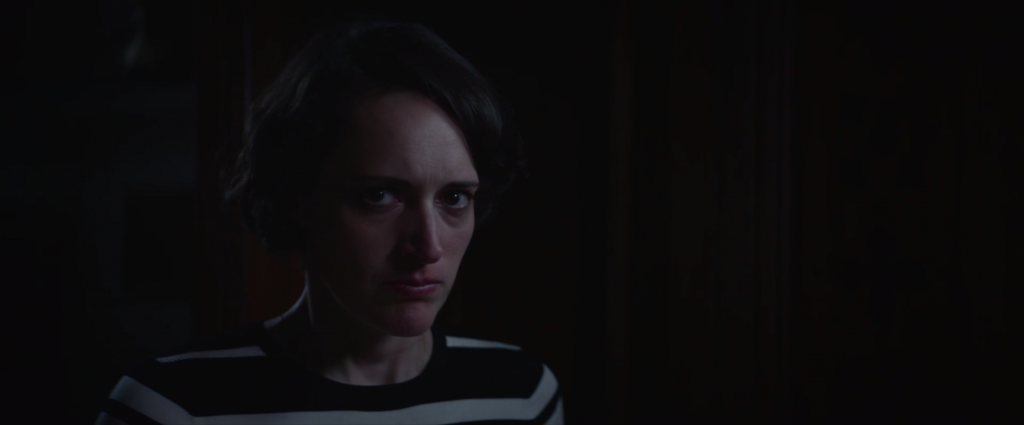
Fleabag premiered on Amazon in 2016 to critical acclaim and a small, cultish fanbase, but not much else. I spent most of the intervening years begging other people to watch it, to varying degrees of success. By the time its second season finally came out in 2019, though, Phoebe Waller-Bridge had entered into a bit of a moment. From appearing in Solo, creating the smash hit Killing Eve, and getting hired to punch up the script for Daniel Craig’s final James Bond outing, it seemed like you couldn’t go anywhere without reading her name. And now, seemingly because of all that, no one can get enough of Waller-Bridge’s unnamed disaster protagonist, and the world is all the better for it. For a while there, it wasn’t clear whether or not Fleabag would grace our screens again after its first six-part pitch-perfect tragicomedy, but the second came crashing back and announced its new journey as a love story.
We could have chosen any of the six new episodes and easily written about its lush style and brutally depressing sense of humor, but none of them quite reach the incredible heights of “Episode 4.” Here, we’re plopped right into the beginnings of Fleabag and Hot Priest’s (Andrew Scott) friendship, watching him try on vestments for her and attending a silent Quaker meeting together. Afterward, she takes him to the café where he’s both amazed and weirded out by its abundance of guinea pigs. The moment that really solidifies their connection is when HP catches Fleabag breaking the fourth wall and asks her where she went off to. He’s the first person in this series to see that deeply into her psyche. And the real, staying image from this episode that I’ll never get out of my head is as they’re finally kissing and, right as they begin to pull each other’s clothes off, a painting falls off the wall in the church, telegraphing for the rest of us what both Fleabag and the Hot Priest already know: This love can never truly work. —Bob Raymonda

“Reflection” (Russian Doll, Netflix)
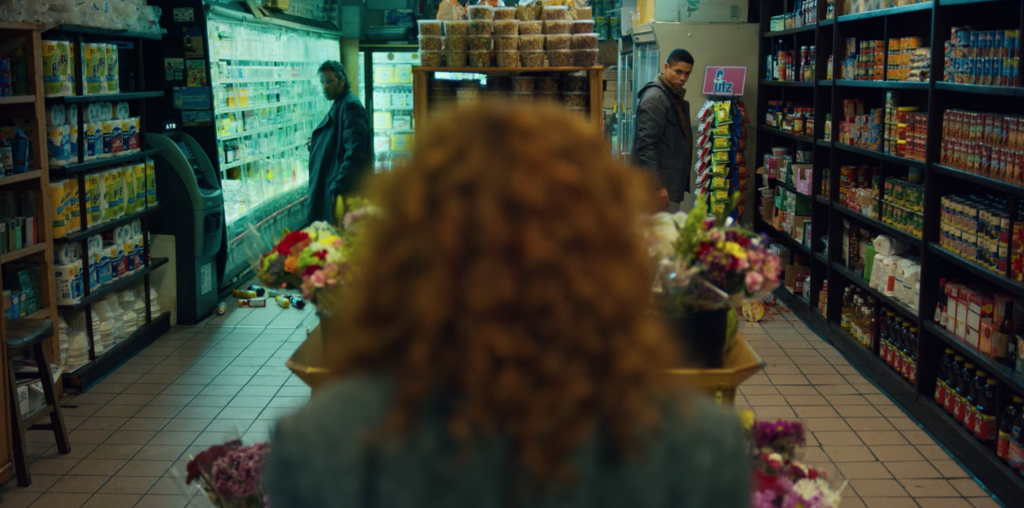
The incredible first season of Russian Doll came out on February 1, setting a very early precedent for best TV of 2019. I binged it all in one sitting and afterward felt, for lack of a better word, exasperated, having laughed, cried, and had my mind blown. What I thought would be a tired riff on Groundhog Day turned out to be one of the most original, touching, and beautiful seasons of TV I’d seen in some time. So for all these reasons, it was hard to isolate just one episode to put on this list, though I knew I had to. I eventually landed on “Reflection,” which finds Nadia (Natasha Lyonne) and Alan (Charlie Barnett) working (and sleeping) together to find out how their recurring deaths are linked. As the episode title suggests, the motif of reflection comes up again and again as each character becomes more desperate to uncover connections between each other and their first deaths until Nadia finally realizes Alan was drunk in the bodega she had visited that first night. But the biggest reveal happens at the end of the episode when Alan tells Nadia he finally knows how he first died: Despite his seemingly tidy, buttoned-up life, he threw himself off the roof of his building, killing himself. Barnett and Lyonne portray the characters’ vulnerabilities beautifully in this moment, and it propels the show to its big conclusion. —Daniel Toy

“This Is Not for Tears” (Succession, HBO)
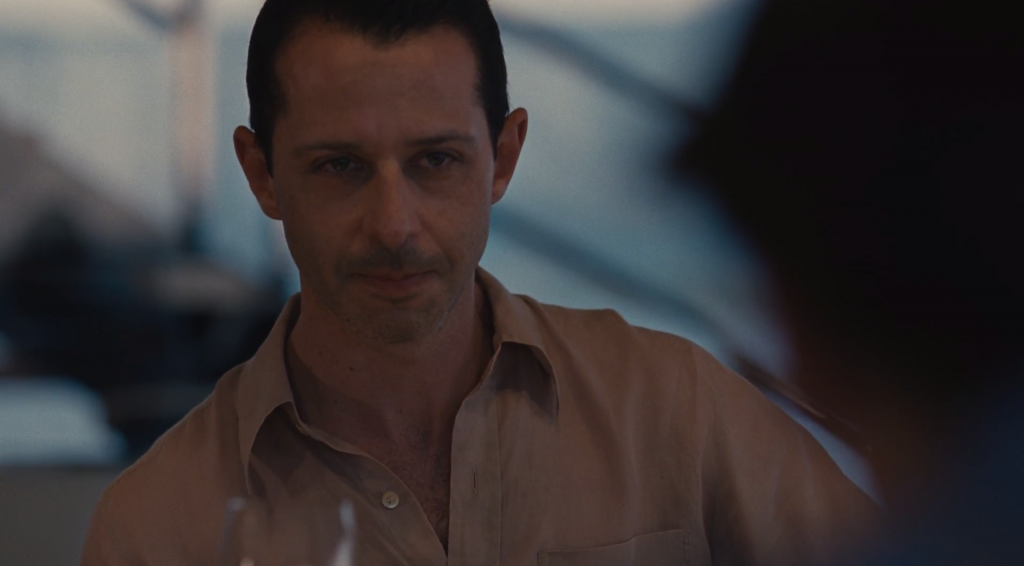
In any normal world, Succession is the exact type of show I would hate—gross displays of wealth, baseline manipulation, business dealings I don’t understand, and characters who clearly hate themselves (and one another). But, man, does Succession find a way to make you feel empathetic for the central Roy family and their associates, whose media company and legacy is constantly at stake. The brilliant second season unfolds against a potential buyout with patriarch Logan Roy holding all of the cards and all of the siblings, significant others, and company stakeholders jockeying for position in Logan’s world.
Everyone is slowly unraveling in “This Is Not for Tears” as the clock starts ticking for Waystar Royco to address the scandal within its walls—no one is safe from being the domino that makes the whole thing fall. After a shocking season one finale, the sophomore season spends so much time positioning Kendall as this sacrificial lamb, hell-bent on repenting for his sins even if that means being the man with a bull’s-eye on his forehead. So when Kendall is where the board lands, his acceptance of his fate feels like the culmination of his personal growth and overwhelming guilt. But the beauty of “This Is Not for Tears” is that it turns the entire season on its head in the final minutes, with Kendall delivering a knife twist of an ending. It was perfectly plotted, and ultimately shocking and satisfying, and one of the best hours to air this year. —Radhika Menon

“What’s Wrong with Your Chest” (Sorry for Your Loss, Facebook Watch)
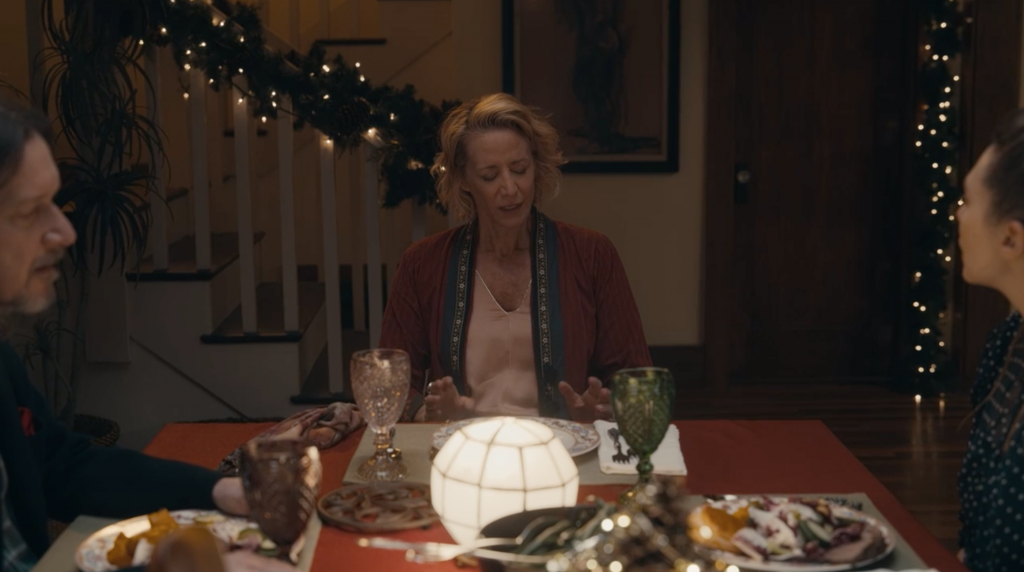
For two seasons, Facebook Watch’s Sorry for Your Loss has proven to be a smart, funny, and poignant show about death, grief, and family—and, to be honest, not enough people are watching. Season one mainly followed the process of grief and healing through protagonist Leigh (Elizabeth Olsen), who loses her husband, Matt (Mamoudou Athie), either to a hiking accident or suicide. Like Leigh, we’ll never know. But season two explores how Matt’s death has affected so many more people than just his wife: His brother, Danny (Jovan Adepo), has recurring nightmares about him, while the faculty at Matt’s school, especially one teacher with whom he had developed a close friendship, has also deeply felt his loss. And in “What’s Wrong with Your Chest,” we see how even Leigh’s mom, Amy (Janet McTeer), has suffered.
After a family therapy sesh, Amy begins doubting her success as a mother, which leads to her staying up all night and remembering the night before Leigh and Matt’s wedding. She’d shared a cigarette with Matt and helped calm his nerves before the big day, and the flashback makes her reconsider her own life and what’s important to her. The exhaustion and mental taxation results in a long, intense monologue during Christmas dinner with her daughters, her ex-husband, and her ex-husband’s new partner, and McTeer is a powerhouse in this scene, turning a previously minor character often played for comic relief into one of the most complex and interesting characters in the show. Amy’s outburst results in her decision to take a trip, sidelining her for most of the rest of this season, but we can’t wait to see how she develops even more in season three. —Daniel Toy

“Episode 6” (Unbelievable, Netflix)
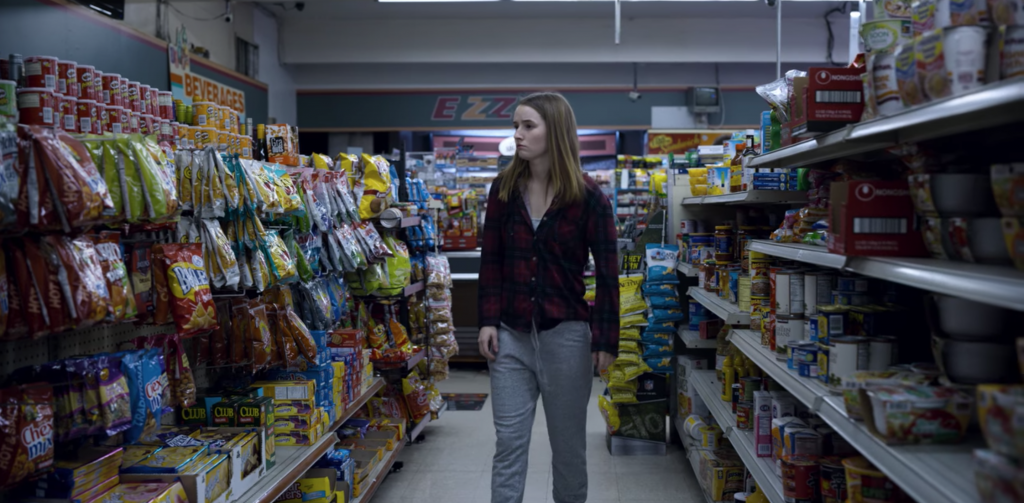
Finally a crime show that puts women at the forefront and not just as the victim. Based on a true story about a rape victim named Marie who was falsely accused of lying, Unbelievable is a rare piece of art that is experienced through a feminist prism. Though centered around and featuring women—not only Marie (Kaitlyn Dever) but also the female detectives (Duvall and Rasmussen, played impeccably by Merritt Wever and Toni Collette, respectively) investigating the case—Unbelievable still includes all the trappings of a typical crime story: late nights poring over data, evidence taped on walls, surveillance videos watched, rewound, and then watched again. But what makes the show revolutionary is its sympathetic gaze upon the victims. Not just Marie, but two other victims related to the investigation are shown, and their varied demeanors subtly point out that people’s responses to trauma like this can be different and that there is no “right” way to cope.
In “Episode 6,” the second-to-last episode of the season, we’re still very much in the thick of the investigation. Marie is starting to spiral as the pain of her memories overtakes her sense of self and sense of reality; the cops are chasing loose threads that keep resulting in nothing. The grind of detective work is no joke, with countless hours spent barking up the wrong tree. That is, until it becomes the right tree. At the very end of the episode, after Rasmussen has tailed a corrupt cop who retaliates by spitting on her face, the duo finally get some good news. Their team has zeroed in on a potential suspect who matches the physical description and owns the same model car that they’ve been tracking as potentially connected to the rape.
“Episode 6” didn’t wrap up any storylines or provide us with a sense of closure (that’s saved for “Episode 8”). But its storytelling was measured and enthralling, and the performances were fiery. For a crime story, it was thrilling—not just as an adrenaline rush, but because it felt like it really mattered. —Radhika Menon

“The Trial” (What We Do in the Shadows, FX)

What We Do in the Shadows got off to a strong, if predictable, start in March of this year. The mockumentary format and the dynamic between its new Staten Island–dwelling leads—Nandor the Relentless (Kayvan Novak), Laszlo Cravensworth (Matt Berry), and Nadja (Natasia Demetriou)—bore a striking resemblance to the trio in the original film. Luckily, the series quickly developed a voice of its own due to the increased runtime and serialization that a television adaptation provides. Still, it was only a matter of time before Viago (Taika Waititi), Vladislav the Poker (Jemaine Clement), and Deacon (Jonathan Brugh) turned up for their own adventures on Staten Island.
A lesser show would have cut the guest appearances here and could have been just fine for it. But what Clement and Waititi (each pulling double-duty as episode writer and director, respectively) cooked up instead is what truly elevated “The Trial” to best-of-2019 status. No—here, the mistaken death of the Baron from the episode prior summons the Vampiric Council, made up not only of the original trio but also Evan Rachel Wood (True Blood), Danny Trejo (From Dusk till Dawn), Wesley Snipes (Blade), Paul Reubens (Buffy the Vampire Slayer), and Tilda Swinton (Only Lovers Left Alive), all playing themselves in a nod to their own turns as vampires, and name-checking Brad Pitt and Tom Cruise in the process. Throw in Dave Bautista as an imprisoned vampire falsely convicted of Laszlo’s crime (of turning a baby into a vampire and dumping it in the Bronx) and Kristen Schaal as a shrieking floating Guide bringing the leads toward certain demise into the mix, and you have one of the most hilarious bits of vampiric mockumentary ever committed to tape. —Bob Raymonda

“Destiny Part 2” (She-Ra and the Princesses of Power, Netflix)

She-Ra fans were treated to three full seasons—twenty-six new episodes—of the show in 2019, and they all came to a head in the final episode of season four, “Destiny Part 2.” As with the rest of the show, the animated action sequences look gorgeous, and with Catra going up against Hordak and She-Ra trying to foil Light Hope’s plan of moving Etheria out of Despondos using the Heart of Etheria, there’s a lot to visually admire. But it’s the character moments that shine brighter than She-Ra in this finale, as each main player must grapple with both their own choices as well as the hands they were dealt.
Adora discovers she was brought to Etheria not by the villainous Hordak but by Light Hope, feeling again like a pawn in a game she decides she doesn’t want to play. Catra is also confronted by Double Trouble, an amazing new nonbinary shape-shifter addition to this season voiced by Jacob Tobia, who shifts into Adora, Hordak, Scorpia, and others to taunt and belittle Catra, asserting their power over her. For the first time in a while, Catra doesn’t have the upper hand, and it takes Glimmer of all people to save her from the falling rubble around her. With She-Ra’s sword destroyed, and with Glimmer and Catra stuck with the mysterious and sinister Horde Prime, we’re left waiting to find out their emotional and physical fates. —Daniel Toy

“The Trials and Tribulations of Trying to Pee While Depressed” (Euphoria, HBO)
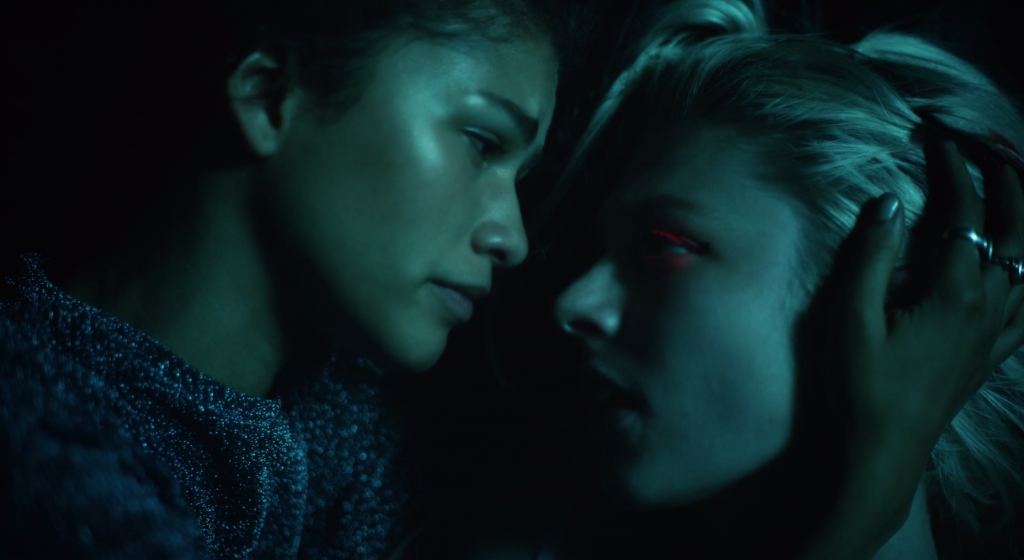
Euphoria’s first season wasn’t exactly critically acclaimed despite its popularity among viewers. Maybe it was the tedious voice-overs or the fact that its characters oozed “Gen Z,” but the series was way more than just glamorous teens getting naked and hooking up. In fact, much of the show wasn’t glamorous at all. It was about addiction, mental illness, sexuality, and identity, and episodes like “The Trials and Tribulations of Trying to Pee While Depressed” proved that the show could say a lot of important things while also being a dazzlingly shot and dizzying emotional experience.
Rue (Zendaya), whose mental illness has affected her day-to-day over the course of her entire life, often turns to drugs as a means of coping with her depression and mania, and her shifts in mental state are on full display as she tries to stay clean after a fight with girlfriend Jules (Hunter Schafer). She experiences her mania as a fast-paced, talkative, gritty noir drama, which soon becomes a deep depression during which she binges more than twenty episodes of a reality show and is unable to move from her bed to the bathroom in order to pee. Even though the situation is bleak, the episode is punctuated with moments of humor, because even though Rue is depressed, she’s still Rue, and Rue is a funny person. It’s a seemingly small detail, but seeing parts of Rue’s strong and likeable personality through the depression she experiences feels very real and makes her eventual collapse due to kidney pain that much more heartbreaking. Meanwhile, Jules takes a bus to visit old friends, gets high, and hooks up with a girl she just met, which seems like the kind of night Rue might be having if she’d taken anything, highlighting how extremely difficult it is for Rue to live as a sober person when to others it could be misconstrued as laziness. Sure, the show can be a little self-indulgent at times, but it also deserves more praise for its accurate representation of mental illness and how it can affect people of all ages in different ways. —Daniel Toy

“Life’s a Beach” (Pose, FX)
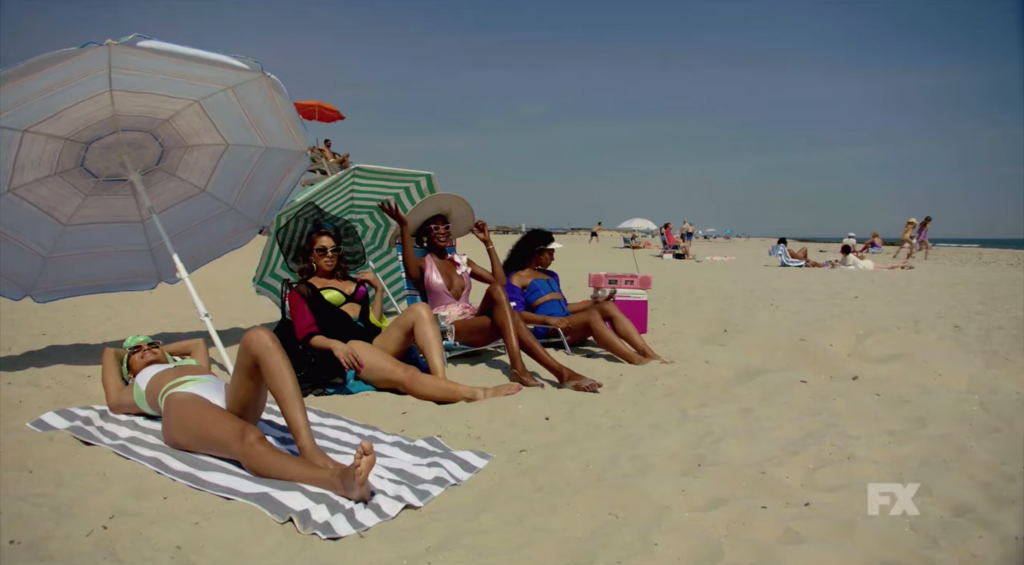
It’s safe to say that any of the episodes from Pose’s incredible second season could have fit comfortably into this list. Steven Canals, Brad Falchuk, and Ryan Murphy’s exploration of ball culture in the late ’80s and early ’90s has, from the very first moments of its series premiere, thrown every possible trick up its sleeve to both dazzle and destroy its viewers. With top-notch production and costume design, some of the best performances imaginable, and beautiful writing, it wasn’t a surprise at all when this show was renewed for a third season before its second even aired. But we still had to make a choice, and for us, “Life’s a Beach” was the clear one to make.
As the penultimate episode of season two, it had a lot riding on it. Blanca’s (Mj Rodriguez) salon had just burned down. Her children, Angel (Indya Moore), Papi (Angel Bismark Curiel), and Damon (Ryan Jamaal Swain), had all left home and moved on in their lives, and her relationship with Pray Tell (Billy Porter) was on the outs over his burgeoning relationship with Ricky (Dyllón Burnside), Damon’s ex. More than anything, this woman who served as a beacon of strength and hope for everyone around her needed hope. And, in a show whose signature move is often to crush you emotionally, it delivered its other secret weapon: joy. Blanca; her mother, Elektra (Dominique Jackson); Angel; and Lulu (Hailie Sahar) take a trip out to Long Island to one of Elektra’s client’s beach homes. Together, they drink, they swim, they eat a meal together, and they laugh. Blanca even meets a man on the beach and spends all night walking and talking to him under the stars. The true standout moment from the episode is when Elektra stands up for her daughters against an anti-trans restaurant patron who has asked the girls to quiet down. Here, a woman who isn’t particularly known for her warmth, utilizes all her strength and wit to defend these women she’d die for. It was a moment of such catharsis for all of them after what had been such a dark year, and it was so well earned. —Bob Raymonda

“Hello, Elliot” (Mr. Robot, USA Network)
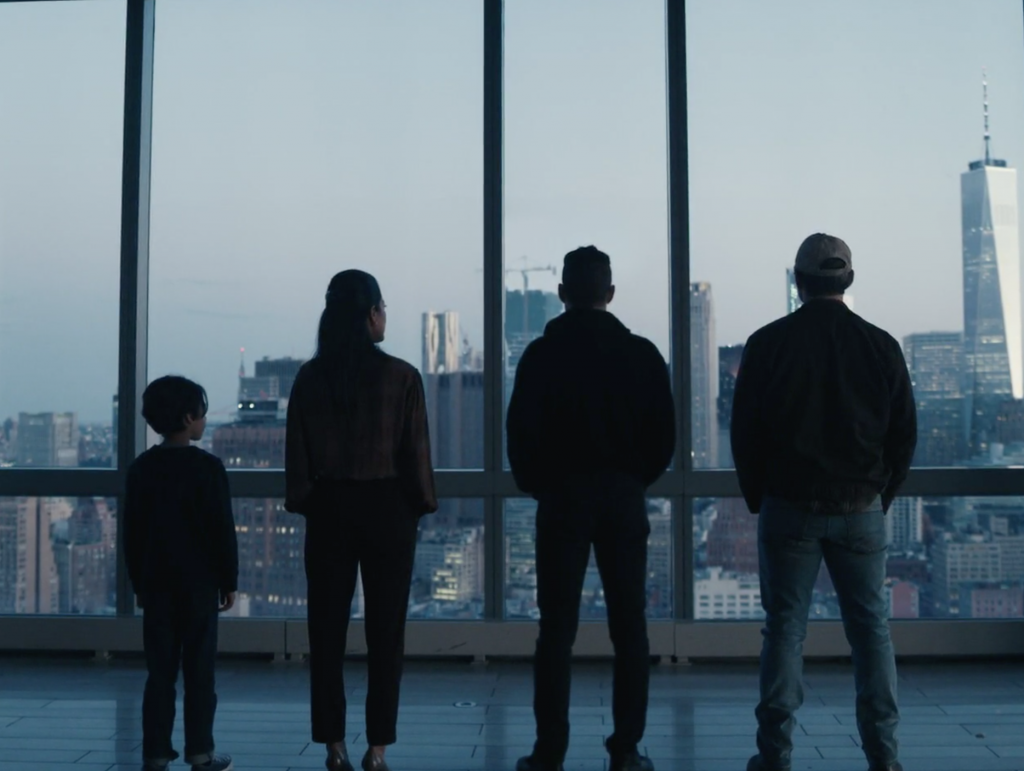
After a powerhouse, twisty first season, an uneven second season, and an exciting but tonally darker third season, it was anyone’s guess how Mr. Robot would wrap up its story of a hacker with daddy issues who was in too deep. And having been off the air for nearly two years between its third and fourth seasons, during which countless other shows debuted on streaming, network, and cable, excitement for Mr. Robot had understandably dwindled. That very quickly changed, though, when season four finally premiered; the series had a newfound energy and urgency as it hurtled toward its final episode, almost never allowing the audience to take a breath. It became clear that creator and director Sam Esmail was finally telling the big story he’d spent three seasons working up to, and it was phenomenal. So good, in fact, that the episode I was sure I’d include on this list changed several times, from the nail-biting, silent heist episode, to the five-act Vera episode that reveals Elliot’s sexual abuse, to the one in which Elliot and Whiterose have one final conversation before the world literally seems to implode. But after seeing (and sobbing during) the series finale, I knew I had to sideline all of those in favor of one of the most moving and spectacular meditations of mental illness ever written.
After Elliot lives an alternate life he’d created for himself in which Angela is alive (and his fiancée!) and Darlene doesn’t exist, he learns that he, like Mr. Robot, is just another personality of the real man Elliot Alderson. The Elliot we’ve followed for four seasons was close to but never the real Elliot, whose dissociative identity disorder prohibited him from being his true self in order to protect him from the trauma of his father’s sexual abuse. But after his hacker Elliot personality, nicknamed the Mastermind, saves the world, and with the help and love of Darlene, all four of his personalities sit together in his mind to watch his entire life unfold, a life he hadn’t previously been able to fully live, and he wakes up to Darlene greeting him for the first time since he was a child: “Hello, Elliot.” It’s the end of the Mastermind’s story, the one told over the past four seasons, but it’s just the beginning of Elliot’s. —Daniel Toy

“Broad City” (Broad City, Comedy Central)
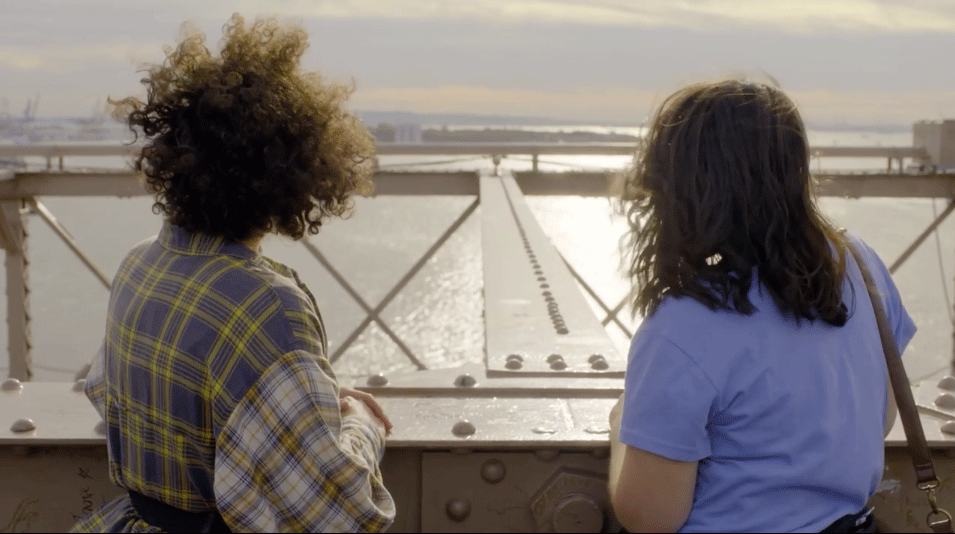
Broad City was my New York City ticker. The show premiered a few months after I moved here and has been a companion piece to my own life’s shenanigans ever since. Aptly titled “Broad City,” the final episode is a pitch-perfect farewell to the two ladies whose comedy has made growing older feel fun and exciting and not oppressive or scary. But in the final season, Abbi (Abbi Jacobson) finally took the reins on her life and decided to attend grad school in Colorado, while Ilana (Ilana Glazer) found her passion in grad school as well, with a plan to study psychology in New York. The finale is not without its usual wacky Broad City-ness: Worried about Abbi’s limited remaining time in the city, Ilana wakes her up early to get the best bacon-egg-and-cheese sandwich, only to find their usual spot has closed; Ilana finds a toilet on the street, and the duo attempt to lug it across the Brooklyn Bridge.
But it’s the adult stuff that lands this episode, the season, and the series overall: Abbi packs up her life in preparation for her move to Boulder, and Ilana has residual resentment that her best friend is leaving her and fear for the lack of time they have left together. One of the best scenes I’ve seen all year is near the end when Abbi sneaks out of her now-unfurnished apartment for the last time without waking a sleeping Ilana. She packs her minimal belongings into the back of a yellow cab and is almost gone before Ilana stumbles out, half asleep and offended. The two say their tearful goodbyes, and Ilana leaves her with a poignant “I’m so proud of you.” It was a perfect moment that celebrated their journey and their friendship, as the show always did. —Radhika Menon

“My Shot” (Grey’s Anatomy, ABC)
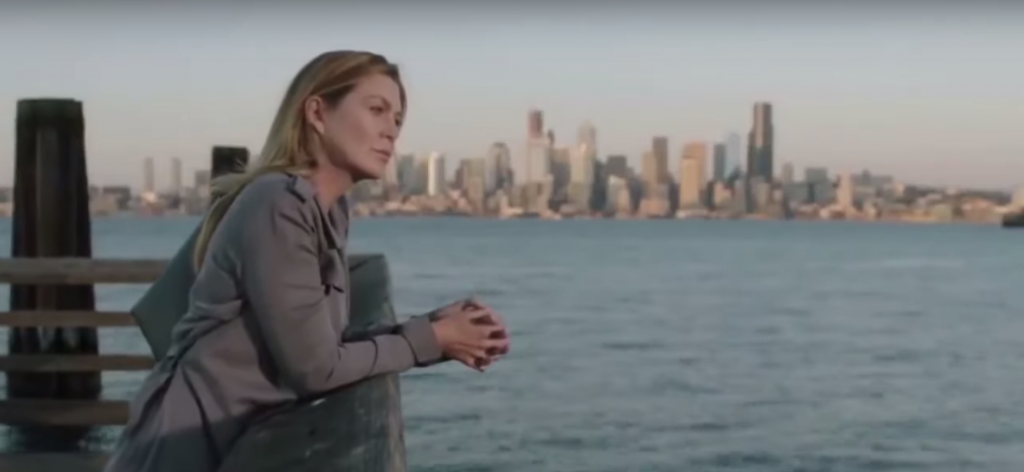
The easy joke to make about Grey’s Anatomy’s sixteen-seasons-and-counting run is “That’s still on?!” It is, indeed, still on. And while the most recent season of Grey’s Anatomy has been far from its best, the uneven storytelling led to one of the best episodes of the show in recent history. Meredith, after insurance fraud suspended her from practicing medicine, finally gets her day in court to defend her actions. Throughout the first two acts of “My Shot,” the jury calls up defendant after defendant in the shape of our dearly beloved Grey Sloan Memorial staff and questions them about the truly ridiculous things that have gone on in the walls of the hospital. Day-one characters like Dr. Karev and Dr. Bailey take the bench, seemingly to help reinstate Meredith, though their approaches are different: Karev has Meredith’s back through and through, while Bailey serves as a complicated voice of reason who shines a light on Meredith’s propensity to bend the rules.
The episode is a clever wink-wink to those of us who have endured some of the crazy plotlines or questionable actions that seemingly had no consequences in the moment. “My Shot” is chock-full of callbacks to early seasons’ plotlines and characters who have left us (can you say “LVAD wire”?), but it never feels like unnecessary fan service. For its 350th episode, Grey’s Anatomy proved that it still has the storytelling prowess and lucid understanding of its strengths to keep the train going for another ten years. And I, for one, will be watching. —Radhika Menon

“Pancakes” (You’re the Worst, FX)
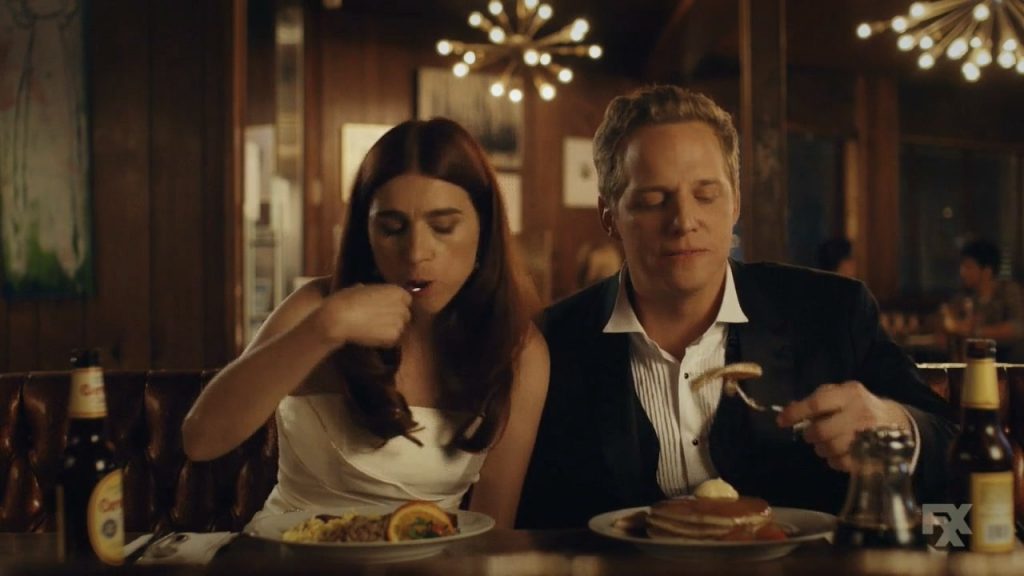
The structural trick of You’re the Worst’s final season was its flash-forwards: In the present, while watching Jimmy (Chris Geere) and Gretchen (Aya Cash) plan their wedding, we’re at the same time presented with a future where that wedding hasn’t happened. And yet, we’re still not sure of their ultimate fate. Until the show’s perfect series finale, “Pancakes,” they’re never shown together in any of the flash-forwards, and the viewer is left wondering about the state of the show’s central relationship. The episode itself is masterful, weaving together Jimmy and Gretchen’s wedding day with Falk’s propensity for beautiful tracking shots, a series of fun throwbacks stretching back to the very first season, and the reappearances of as many of its cast of weird recurring characters as possible. But it also doesn’t pull any punches: Edgar (Desmin Borges), who spent the end of Jimmy’s bachelor party pleading with him not to marry his mentally ill fiancée, is parked out front in his car listening to a fake murder mystery podcast, ready to be Jimmy’s escape despite his banishment from the wedding. We’re shown, first through a visit from Lindsay (Kether Donohue), that Edgar’s decision has not only broken up the group but, through a visit from Gretchen, ruined any chance he’s ever had of Jimmy respecting him.
Despite their best efforts, Edgar has gotten into both of their heads. Jimmy saw, earlier in the episode, Gretchen receiving an envelope with the vows she couldn’t write herself and confronts her in her room about why they’re even doing this. And though this could have easily been the moment we were all dreading, with the crumbling of their relationship, Falk (the credited writer for this episode), turns our expectations on its head and has Jimmy and Gretchen choose, yes, not to get married but to stay together instead. To wake up every single day and choose to love each other all over again. Brilliantly, we learn that the person Jimmy has been afraid to confront in all of the flash-forwards wasn’t Gretchen but Edgar, who he hasn’t spoken to since his betrayal the night before his wedding. You see, this selfish act was the only thing Edgar could think to do to finally get himself away from his toxic friendship with Jimmy and move forward in his own life. To end the episode, we’re treated to a montage of everyone’s future. It may not all be drunken Sunday Fundays together like they once wanted, and may instead include Edgar moving to NYC, Lindsay and Paul (Allan McLeod) getting remarried, and Gretchen and Jimmy having a baby and selling their house, but we begin to see what matters: These people we have followed so closely for five years have grown up. They haven’t changed, exactly, but they’ve recognized what they need to keep moving through this world. And if that isn’t a win, I don’t know what is. —Bob Raymonda

“Our Little Island Girl” (This Is Us, NBC)
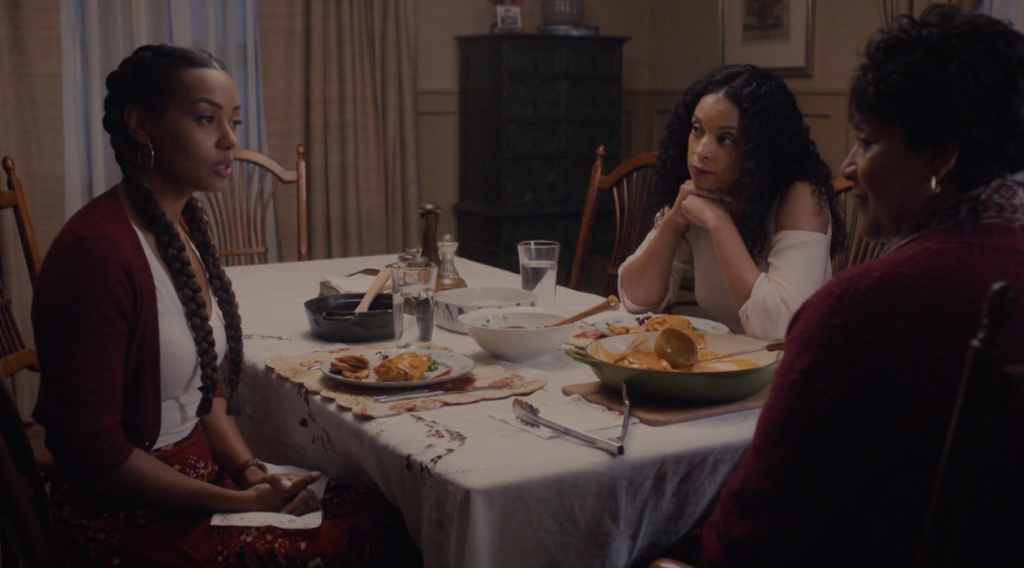
Viewers of This Is Us have known that Beth Pearson is one of the show’s secret weapons. She’s warm, vivacious, and inviting but equally unafraid to call people on their bullshit or sink her teeth into a sassy comeback. Beth has long deserved her own episode, and four seasons in, we finally get to see who she is without Randall and how her own familial experiences shaped the woman she is today. “Our Little Island Girl” takes us back to the beginning, where a young Beth is a promising ballerina determined to follow her dancing dreams. But despite her best efforts and extensive training schedule, Beth doesn’t have the “it” factor for a professional dance career—in order to avoid imminent failure, Beth’s demanding and perfectionist mother plucks her out of dance and forces her to apply to college. It’s there where Beth meets our dear Randall and falls in love, and the rest is history. But it’s clear that part of Beth never quite got over her stolen first love.
The time-bending show has always excelled in the heartfelt, humanistic moments—there’s a reason it’s known for making people cry. “Our Little Island Girl” does what This Is Us always does and showed us that life is unexpected and happiness is not always a linear path, that things come full circle and family is hard. But you have to keep dancing. —Radhika Menon

“Season 4 Episode 6” (Catastrophe, Amazon Prime Video)
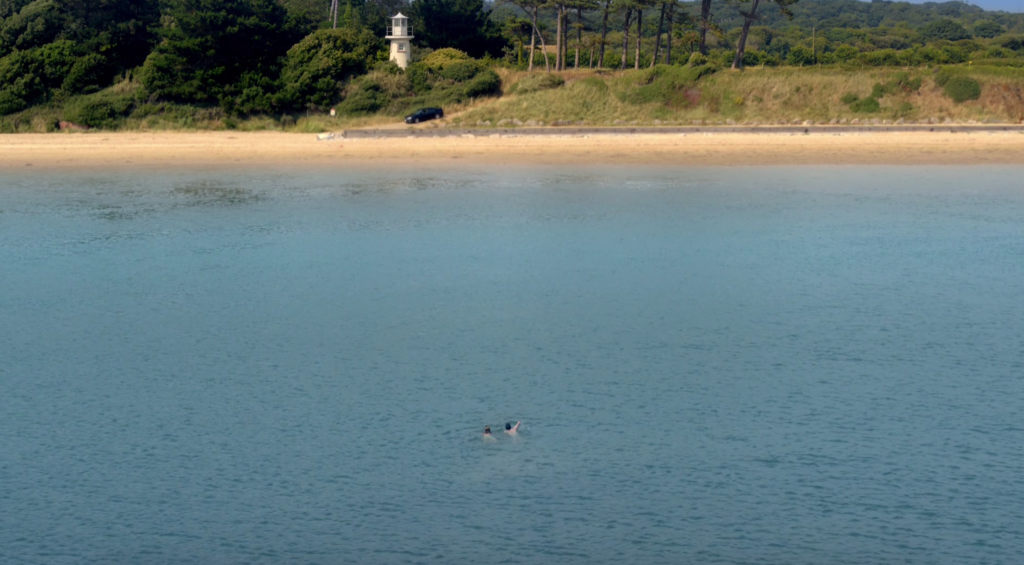
For four seasons, Rob (Rob Delaney) and Sharon (Sharon Horgan) navigated the ups and downs of life while in a relationship, surviving alcoholism, each other’s families, and not one but two surprise pregnancies. They’ve fought. They’ve loved. And they’ve both hurt each other and made each other the happiest they’ve ever been through their sarcasm and cynicism. So it makes sense that all of these elements are in play in the series’ final episode. It opens with the death of Rob’s mother, Mia, played by Carrie Fisher, whose real-life death gives the narrative choice even more weight (the third season of Catastrophe was the last thing Fisher filmed). Mia’s death leads Rob to confront his family’s history of abuse, and the stress of the entire situation leads to a potentially relationship-ending argument between him and Sharon. But we’ve seen them go through worse than this before, and they’re quick to apologize to each other as they pull their car over to sit on a small beach.
It’s this final scene that elevates this episode from being a good finale to a great one. Sharon reveals she’s pregnant (again), but this time it isn’t a surprise; Rob had already seen her pregnancy test results at home. To lighten the mood with a bit of spontaneity, Sharon strips off her clothes and jumps into the water. Rob stays behind, claiming he “doesn’t want to have fun,” but when he looks back at their car to check on their sleeping children, he notices a nearby sign warning of strong currents. He calls after Sharon, but she doesn’t hear him, so he goes in after her. But as he catches up to her while Arcade Fire’s “The Suburbs (continued)” plays, there’s no sense of urgency. They kiss and laugh before taking their time to swim back to shore, and we never see if they make it back. The symbolism of this final shot not only encapsulates Rob and Sharon’s rocky relationship but any relationship: You have to fight to make it work, and life is too short not to at least maybe try. —Daniel Toy

“A Quick One, While He’s Away” (BoJack Horseman, Netflix)
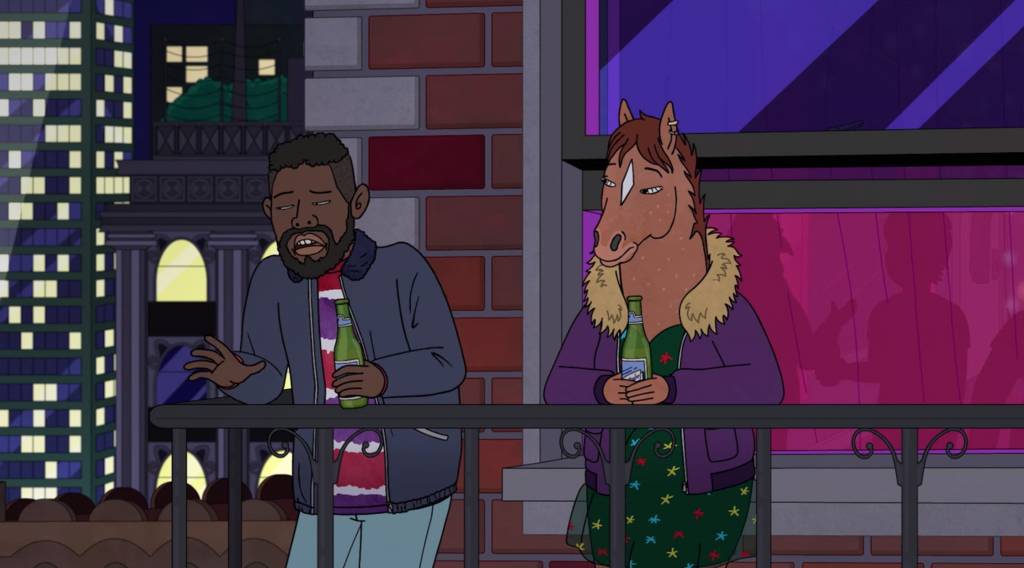
After six seasons of BoJack Horseman exploring its titular character’s yearslong experience with addiction and self-destruction, it seems he’s finally ready to take his sobriety seriously. Given one final, extended-length season to wrap up its Netflix run, Raphael Bob-Waksberg and Lisa Hanawalt’s series has been in nothing but top form. While only eight of its final sixteen episodes have aired, you can tell that the team is ready to wrap up BoJack’s journey on a high note. Season six spends each of its first few episodes focusing on individual characters, and while it’s refreshing to see that BoJack has moved on with his life, the show is right in letting us know that not everyone else has been able to do that so quickly.
Never is this more apparent than in its midseason finale, “A Quick One, While He’s Away,” which is spent primarily following women who have been harmed by BoJack in one way or another. Starting with Character Actress Margot Martindale leaving a convent where she’s been in hiding for two years, we see BoJack’s half sister, Hollyhock, in New York City wanting to go out and explore the world but clearly afraid to drink because of BoJack’s problem. Then we’re introduced to investigative journalists who begin to dig deeper into the circumstances of BoJack’s old Horsin’ Around costar’s death. And finally we spend time seeing both Kelsey Jannings, the fired director of BoJack’s Secretariat project, and Gina, the costar he abused on his edgy show Philbert, deal with being pegged as difficult women to work with despite their extenuating circumstances. The crushing realization at the end of the episode—that Hollyhock, a person BoJack is doing his best to become a close positive influence on, is about to learn about his past misdeeds in Arizona—reminds us that no matter how hard we try to move on, there are some mistakes for which we’ll never be able to fully atone. —Bob Raymonda

“Employee Appreciation Day” (Superstore, NBC)
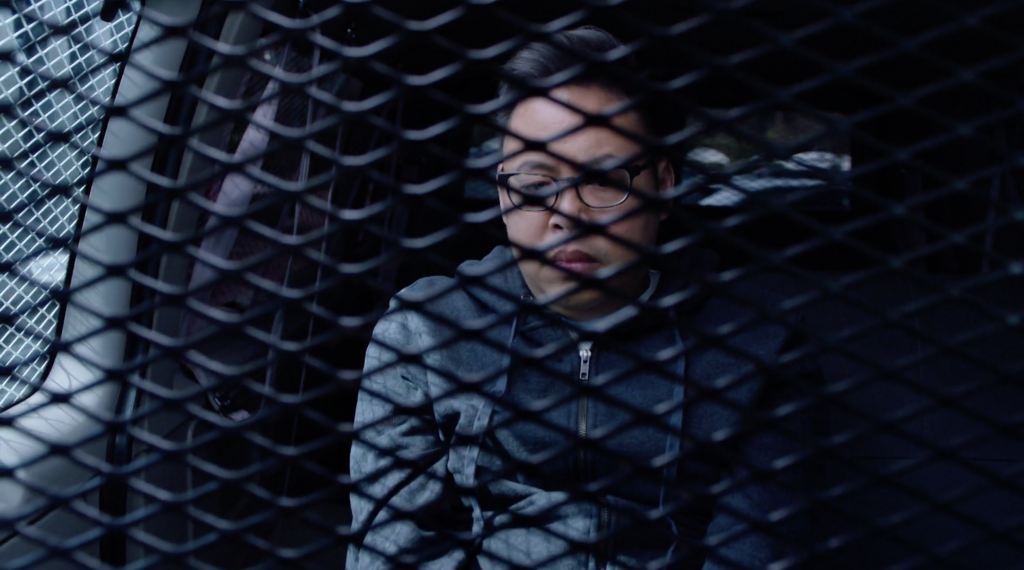
“Employee Appreciation Day” had a lot riding on it when it aired back in May. Earlier in the month, it was announced that Superstore creator Justin Spitzer would be leaving the series. The season finale, then, had to wrap up half a year’s worth of storytelling while also giving us a good enough cliffhanger to warrant coming back after the captain had abandoned ship. Fortunately for us, the episode delivers all that and more. The first act crams in visual jokes, like a throwback to the time Cheyenne (Nichole Bloom) gave Marcus (Jon Barinholtz) a terrible full-back tattoo of his mother in an Abraham Lincoln–sized top hat, or the moment when everyone in the break room realizes that the woman in the corporate-mandated union-busting video has seemingly gotten pregnant by the company’s new CGI mascot MC Cool Cloud. And yet, in a turn I can’t believe I’m about to type, the moment that makes this episode special is when the second act hits and Corporate sends ICE to the store to scare the employees who’ve begun to unionize.
Matteo’s (Nico Santos) immigration status has been a red herring for years now. He’s come so close to being caught so many times that it was only a matter of time before someone finally came for him. And while I may have expected it to happen eventually, I never would have imagined what we got: Everyone in the store bands together to protect their friend and coworker. From calling everyone they know from out of town to fill the store with customers, Kelly (Kelly Stables) distracting agents with long-winded beauty pageant stories, Marcus’ ill-conceived plan to hide Matteo in the trash compactor, Cheyenne offering to flash the pursuing officers with Amy (America Ferrera), to that final bloodcurdling moment when Dina (Lauren Ash) attempts to guide him out of the store by checking the security monitors and realizes that there is no escape. Spitzer could have taken the easy route, finished some season-long plots, and let the central conflict between Jonah (Ben Feldman) and Amy’s opposite opinions over unionizing. But no: He decided to blow up the entire show in a way far more devastating than season two’s tornado ever could have been. —Bob Raymonda

“A Cold Death” (Primal, Adult Swim)
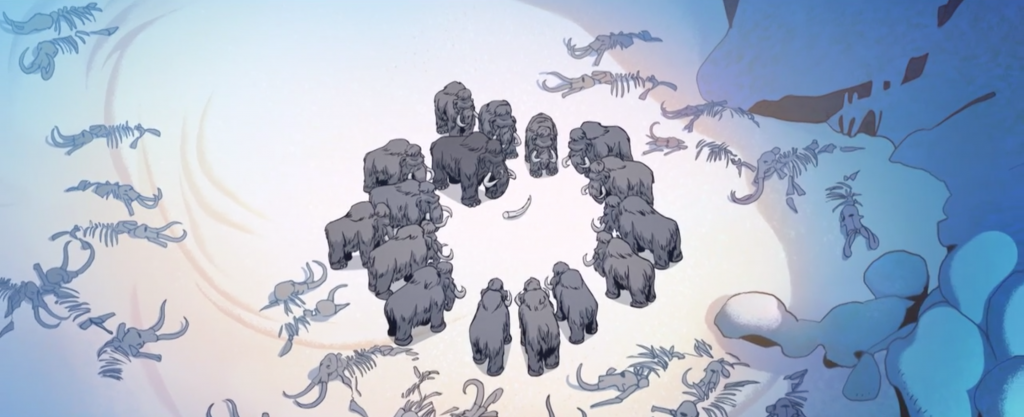
Primal, the latest animated series from Genndy Tartakovsky (Samurai Jack), follows a caveman named Spear and a T. rex named Fang as they fight to survive the various threats that surround them in a heightened version of prehistory. Despite being almost completely devoid of dialogue, save for Spear’s occasional grunts and Fang’s earth-shaking roars, the show stuns with its visceral imagery and grounded emotions.
The premiere opens in tragedy, with Spear and Fang uniting after losing both of their families to predators, setting a violent, nihilistic tone for the rest of the show. But the violence and beauty of life—for both humans and animals—is best explored in Primal’s third episode, “A Cold Death.” The episode opens on a herd of wooly mammoths trekking through an icy tundra. One mammoth in particular looks disheveled and weak, and it quickly falls behind the rest, eventually crumpling to the elements. But then Spear and Fang jump from a cliff and deliver the final blows that kill it. It’s heartbreaking to watch, but such is the circle of life: Spear and Fang need its meat for food and its pelt to stay warm if they have any hope of surviving the snowstorm. The rest of the herd then hunts for the dead mammoth’s killers, retreating only once Spear offers back the dead mammoth’s tusk to them. The herd then continues their grueling journey and takes the tusk to a mass mammoth graveyard, where they stand in a circle around the last remnants of their fallen friend and take turns gently caressing it with their trunks in remembrance. —Daniel Toy

“The Voter” (The Politician, Netflix)
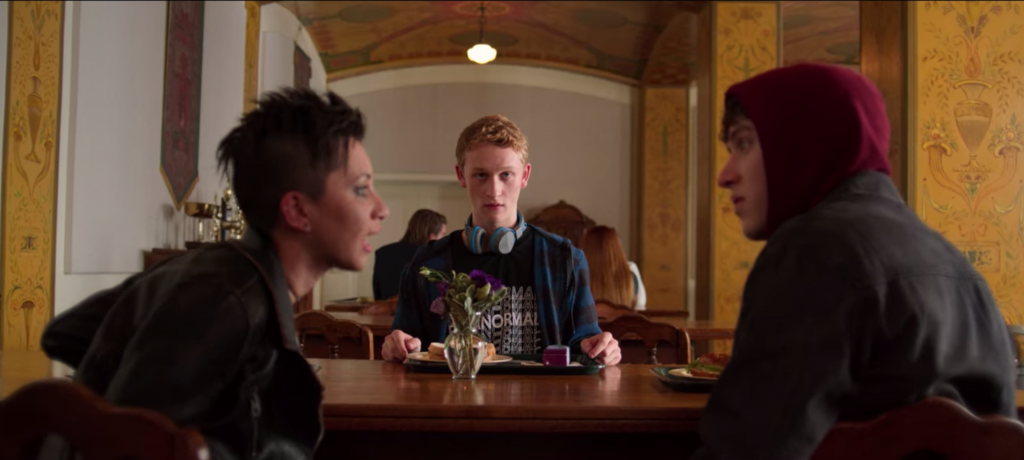
The Politician showed flickers of brilliance within its visually gorgeous, sometimes satirical, often campy first season, to disjointed but fun effect. But in “The Voter,” a shorter bottle episode of sorts, the show’s normally disparate tones come together perfectly while advancing the plot and being a masterful, small-scale representation of politics as a whole. It follows a new student named Elliot Beachman (Russell Posner), a Fortnite-obsessed compulsive masturbator who doesn’t give two shits about Astrid’s and Payton’s election campaigns. But Elliot, perfectly average and self-interested in every way, is a stand-in for the swing voter, and no attempts by Payton, Astrid, or their teams to sway Elliot to vote for them seem to faze him. When they do eventually get him to talk a little, he’s interested only in private bathrooms (for masturbating) and the option to buy Flamin’ Hot Cheetos from vending machines (honestly, respect). In other words, he is a caricature of way too many Americans come election time. After the many, many arguments thrown at him for why he should vote, his decision not to vote at all hits that much harder at the end of the episode, begging the question: What would election results look like if all the Elliots of the world actually did vote? —Daniel Toy

“The Answer” (The Good Place, NBC)
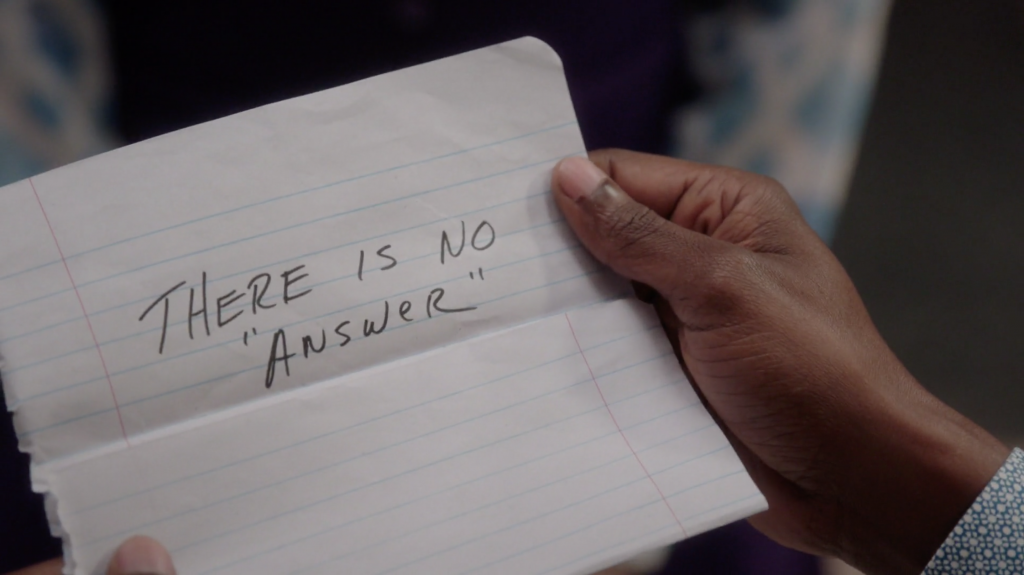
We had a little bit of trouble choosing this one, with Dan arguing for the note-perfect season three finale “Pandemonium” and myself gunning for this year’s final episode before the winter break, “The Answer.” [Editor’s note: I stand by “Pandemonium.”] But because I’m the one writing about it, I’m going to go ahead and say that I won (scientifically). [Editor’s note: Fine, you won…this time.] That being said, this episode takes one of my favorite modern-sitcom tropes and absolutely knocks it out of the park with the non–clip show clip show. You see, since “Pandemonium,” Chidi (William Jackson Harper) has been sidelined with his memories wiped after Eleanor (Kristen Bell) took over as Good Place architect during the Judge’s (Maya Rudolph) final offer to give the humans a chance at entry into the “real” Good Place. Here, we’re offered a glimpse not only into Chidi’s journey through his first eight hundred afterlives and second life on Earth, which we’ve already seen, but also his first life on Earth, all the way back to his childhood.
Chidi is a man who is haunted by life’s infinite questions and forever in pursuit of the answers to all of them. He gives his parents an hourlong lecture on the merits of not getting divorced, tries to save a failing relationship by bonding over a mutual love of Kant, and offers to write a new draft of his already three-thousand-and-counting-page graduate thesis. He asks veritable swamp rat Jason Mendoza (Manny Jacinto) how he can make decisive plans for his future with such relative ease, rejoices over his fridge’s ability to choose his favorite breakfast for him, and balks at the idea that Eleanor would kiss him just because she wants to, even though she knows he already has a soul mate. Was this the most revelatory episode of The Good Place that has ever aired? No. That honor goes to 2018’s “Janets”—I will not be taking any further questions. [Editor’s note: Here we agree.] But it does point us in the direction that Team Cockroach’s journey has been going all along: together. Because, sure, Eleanor may be Chidi’s answer, and Chidi may be Eleanor’s, but the real answer is that life and, maybe here, death are only worth the fight because we’ve got people we love wading through its uncertainty right along with us. —Bob Raymonda

“0 horas desaparecido” / “0 Hours Missing” (Elite, Netflix)
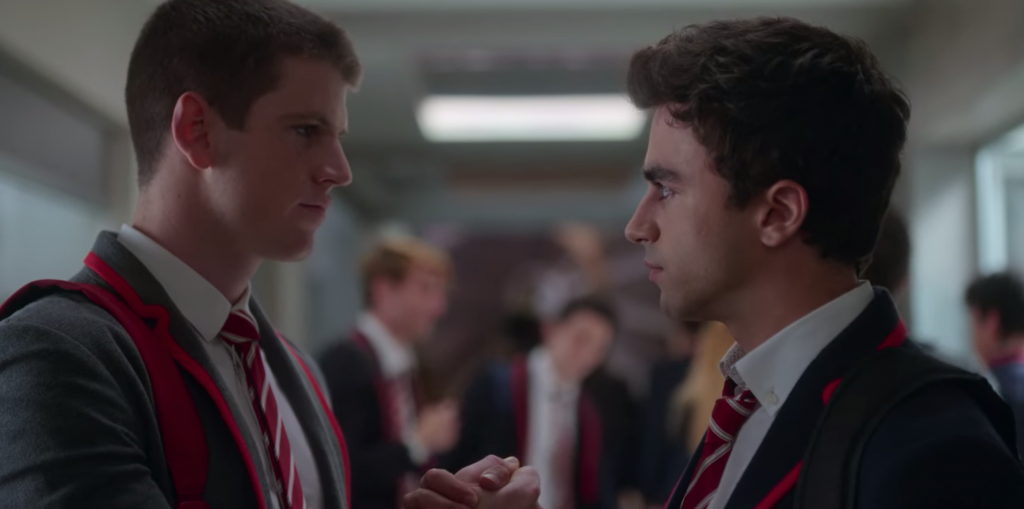
Elite isn’t a very difficult show to describe to someone, as it feels like an amalgam of several teen shows that have come before it. It’s got the murder mystery appeal of How to Get Away with Murder, the willingness to explore taboo subject matter of Degrassi, and the sexiness and shirtlessness of Skins, but it differs in that it combines and pulls off all of these storytelling elements better than any of its predecessors. Nowhere is this more obvious than in its second season finale, which finally answers the season-long question of what happened to Samuel while also delivering so many big character moments that what should just be a juicy finale becomes an emotional roller coaster.
Samuel, thought dead, has actually been hidden away and protected by his former sworn enemy, Guzmán. The two have finally put aside their differences in order to concoct a plan to elicit a confession from Carla, revealing to authorities her and Polo’s involvement in Marina’s death. With Polo finally in custody, Samuel and Guzmán finally reach a sense of closure over Marina’s death, even becoming friends, but when they return to school, Polo is there too: Cayetana was able to retrieve the statue used to kill Marina, and with no confession from Polo and no evidence to link him to Marina’s death, he’s a free man once again. It’s a pitch-perfect finale that gives us everything we love about the show, including a giant cliffhanger that’s sure to test everyone in season three. —Daniel Toy

“Shake the Cocktail” (Better Things, FX)
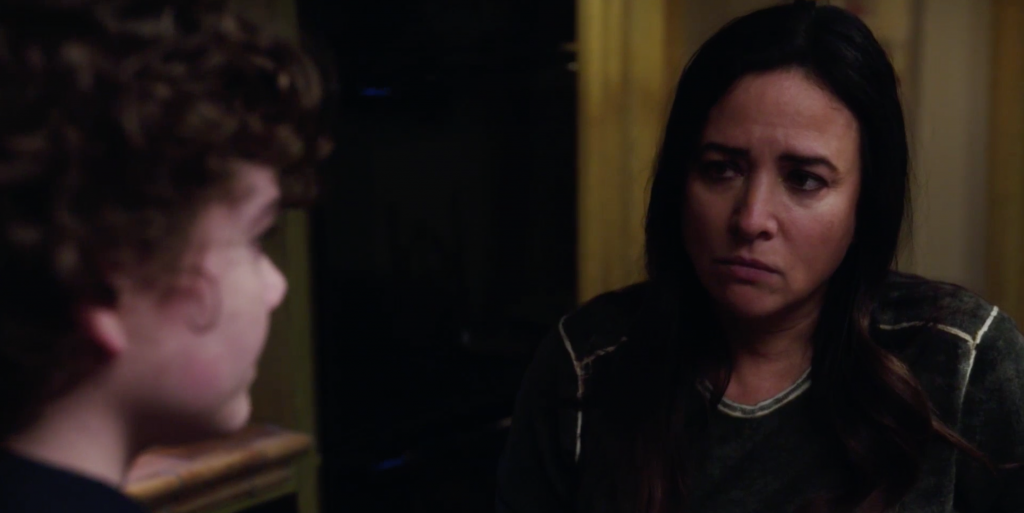
Something about Pamela Adlon’s writing and directing style for Better Things has always felt ethereal. Scenes are presented to the viewer exactly as they are, often without too much intricate plot or comment. No episode showcases this talent more than in Better Things’ meaty third season finale, “Shake the Cocktail.” The episode starts with Sam’s (Adlon) youngest daughter, Duke (Olivia Edward), prancing around outside with an unexplained red balloon before cutting to Sam sleeping not in her own room but on the bed of her middle child, Frankie (Hannah Alligood). She wakes up and checks her “Find My Friends” app for Frankie’s location, which isn’t being shared and hasn’t been for over a week, and makes a stop in oldest daughter Max’s (Mikey Madison) room to find her in bed with a boy. Throughout the course of the episode, we learn that Frankie’s staying with a friend and isn’t speaking to Sam, though a network of her friends, family, and tutors is all giving Sam updates as to her whereabouts.
This is clearly driving Sam nuts, as she cooks Frankie’s favorite meal and leads her daughters in a sing-a-long to the Phineas and Ferb theme song, which the whole family clearly adores. And while Sam spends the entire episode obsessing over her issues with Frankie, you can tell that there’s something else that’s really bothering her. And while it’s hinted at throughout the episode, we finally learn the true thing that’s getting under her skin: her fiftieth birthday. And after they all watch Frankie’s choral recital (with an honestly fantastic a capella cover of Florence + the Machine’s “Shake It Off”), Frankie finally comes home—not to stay but to give her mother a card congratulating her on another year of survival and apologizing for being an asshole. The episode ends with a vision of the ghost of Sam’s father (Adam Kulbersh), who’s been haunting the family all season, mentioning that he never made it this far, asking her what she’ll do next. The final shot is of a birthday cake that Max and Duke have baked her with two large candles—a five and a zero—with all the lights fading away, eventually showing only Sam and her birthday cake. It’s a masterful final shot, and I absolutely cannot wait to see where Sam and her family go in season four next year. —Bob Raymonda
